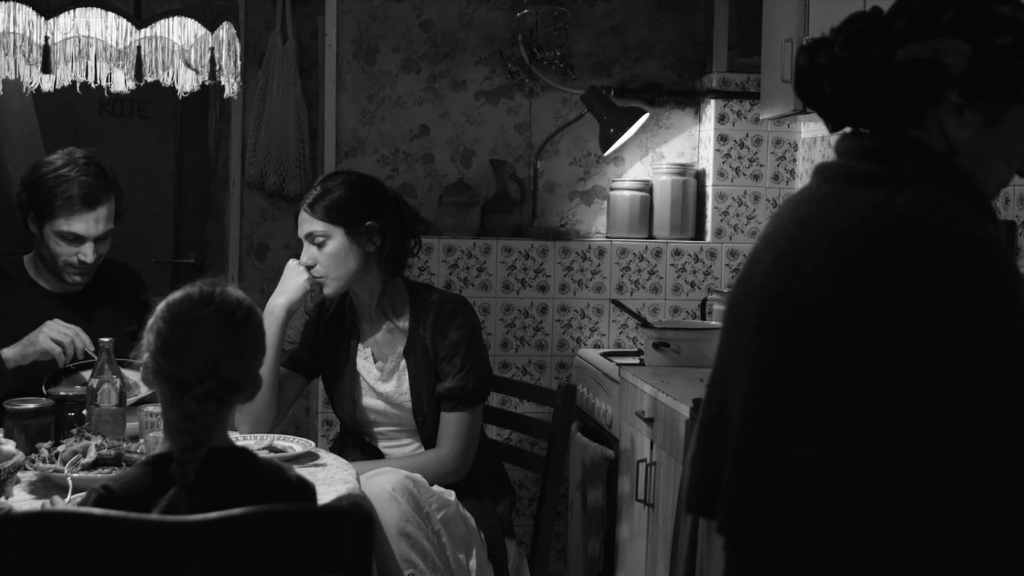Bebia, à mon seul désir

In Bebia, viewers are rarely permitted to make eye contact with the characters. This is because the framing is perpetually locked in a headless mid-shot. While the picture is constantly truncated up from actors’ necks, the camera is unwilling to rise and depict anyone’s expressions or reactions. The movie’s subjects are clearly present; spectators see their interactions and hear their voices, but the full context is typically forgone, both spatially and emotionally. For some, it may erase the cinematic dimension at times, but this formal confinement – which is subsequently unbound – is nevertheless a shrewd clue to the feature’s essential themes of relational distance and poignant restriction.
Just like the camera seemingly won’t cope with the gaze of its subjects, neither does 17-year-old Ariadna (Anastasia Davidson). The protagonist returns to her native village in Georgia for the funeral of her oppressive grandmother, Bebia (Guliko Gurgenidze), forcing her to reunite with her estranged family and their old habits. Having embarked on a modelling career in the US, she’s long since spurned her problematic past and relatives. She doesn’t want to know them, nor their customs, culture or traditions, and she’s unafraid to express it.
The movie’s centrepiece depicts her spiritual but reluctant mission to trek through the forest, tethering Bebia’s deathbed to the body’s resting place. Along with her laid-back, philosophising companion Temo (Alexander Glujidze) – who doesn’t receive a close-up until the picture’s penultimate scenes – an existential focus emerges on the passivity of life against death. The film is at once unique and Bergman-esque with its pristine black-and-white cinematography and balance of intimate yet grand camerawork,
Bebia is distinct in the sense that it lacks the renowned Swedish filmmaker’s warmth. Director Juja Dobrachkous creates an original exercise in what could be labelled as anti-nostalgia, given that the past is so engrossed upon but never once handled reverently. Ariadna is starkly unemotional about the death of her grandmother and the audience begins to understand why from flashbacks to her unfulfilled childhood. At times these scenes, cleverly mirror and weave into the present day, forming an understated representation of not only the protagonist’s reflection of her sad past but also of her adult self’s confinement within it.
The methodical funerary process of this forgotten village is intricately handled and is clearly a principal interest to the director, perhaps even outshining her plot or characters – but then, these things are intended to be minimalist. The narrative spells nothing out and the viewer has to fill in the blanks, but an incredibly formed world and mood is evident regardless. Additionally, there is no grand ending, no definitive finale to Ariadna’s character arc. She opens up gradually, but there is only an acceptance rather than an embracing of the past. Thanks to this scene and many others like it, Bebia is a perfect example of thematic subtlety and drama without melodrama.
Ben Aldis
Bebia, à mon seul désir is released digitally on demand on 7th February 2021.
Watch the trailer for Bebia, à mon seul désir here:
























Facebook
Twitter
Instagram
YouTube
RSS